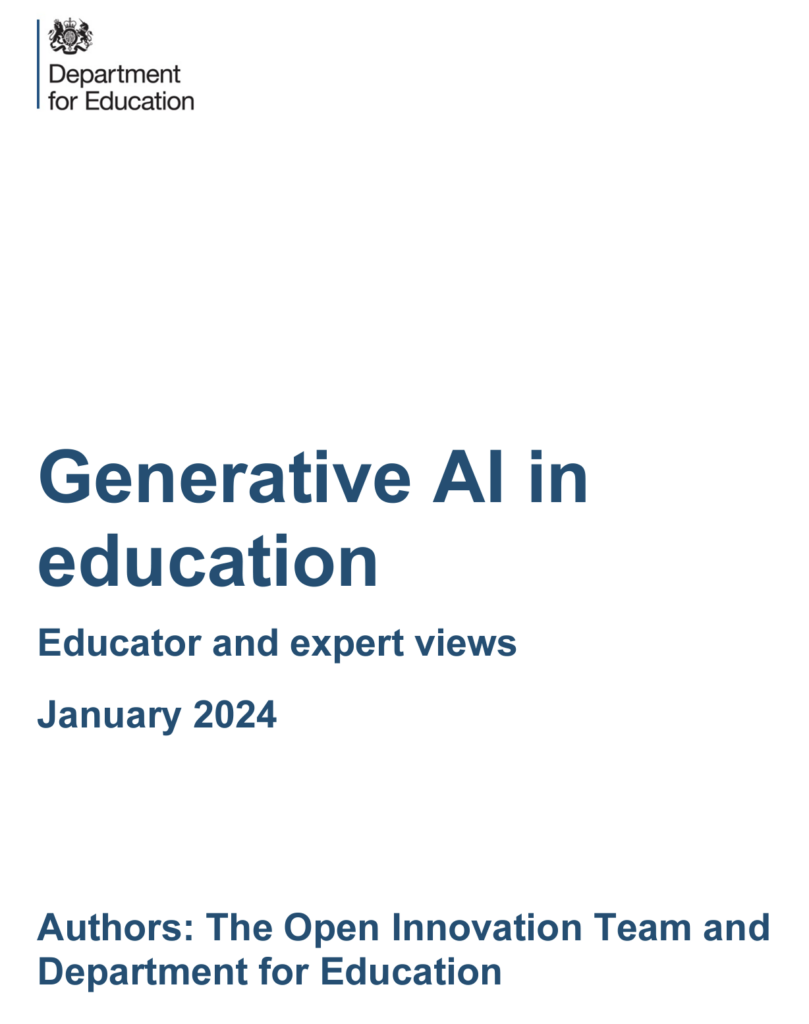
The DfE’s report sharing educators and experts views has recently been released and we’re proud to see TeachMateAI appear as a tool educators are using in their practice. You can read the full report by clicking on the image above, however we’ve also loaded into our DocuDive tool to help you easily ask questions about the report’s findings. You can do this using the tool here: https://teachmateai.com/docudive
You can also ask DocuDive summarise the main findings of the report, like we did here…
- Teachers and experts recognise the transformative impact that Generative AI (GenAI) can have on education. It has the potential to save teachers time by automating tasks and personalise learning for students, leading to improved teaching effectiveness.
- The use of GenAI among teachers and students has rapidly increased. By November 2023, 42% of primary and secondary teachers in the UK had used GenAI in their role, compared to 17% in April. Additionally, 74% of online 16-24 year olds in the UK have used a GenAI tool.
- Educators are already experiencing the benefits of GenAI, such as saving time in creating lesson resources and providing personalised learning materials for students with special educational needs and disabilities (SEND).
- However, there are concerns about the risks associated with GenAI. These include academic malpractice, student overreliance on GenAI, ethical and safety risks, data privacy concerns, and the potential for widening educational inequalities.
- There is a need for government support to ensure safe and effective adoption of GenAI in education. This includes sharing guidance and best practices, protecting student data and privacy, and building an impartial evidence base to understand the impact of GenAI tools on education.
- The education sector is adapting to GenAI technology, with guidance provided by organisations like the Joint Council for Qualifications (JCQ) and Russell Group universities. However, there is still uncertainty and skepticism about the effectiveness of technology in education.
- Best practice guidance and ongoing stakeholder engagement are recommended to ensure successful deployment of GenAI tools. Educators need support in identifying safe and effective tools, training on best practices, and access to evidence-based resources.
- A long-term strategy is needed to set the direction for GenAI in education, considering its potential to change the current model of education and preparing students for an AI-enabled workforce.
- Other recommendations include promoting evidence building, addressing academic malpractice and updating curricula, responding to changing workforce requirements, ensuring safety and data protection, supporting access to GenAI technology, and considering the implications of GenAI on intellectual property and publishing.
